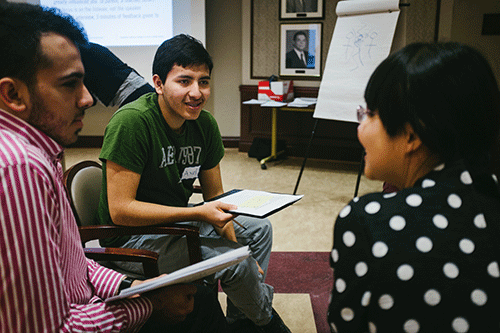Rachel Adams (PhD, IBBME) recently attended ILead’s Leadership Lab on Goal Setting Strategies. Check out her reflection on the Leadership Lab below!
Setting goals. Seems like something a PhD student would routinely practice, right? Well, I recently attended an ILead Leadership Lab on Goal Setting Strategies and realized just how infrequently I set realistic and achievable goals. In this workshop, I was reminded of how valuable and powerful it is to set goals for myself, and I learned effective tools and strategies that can be used to better define goals. I decided to focus on two main aspects of my life where effective goal setting would have the most impact: completing my PhD and achieving better balance in life.
While working towards my PhD, my goals have traditionally aligned with more imminent tasks defined by my department, conferences or SGS. As a result, I often fail to identify my own goals for the semester, year, or beyond. As someone who is looking to complete my graduate studies soon, learning how to break down the big picture into tangible and meaningful milestones of progress is key to mapping-out how I will complete my project. The SMART tool has been an effective way to help me create specific goals and bring focus to my work. Thinking about ways to hold myself accountable, or evaluating how realistic my goals are, has helped direct my daily decision-making process. Ultimately, I have found that when I am diligent and structured about my daily decisions, I begin to achieve my broader goals.
Throughout graduate school, I have found that balancing expectations, both academic and personal, is acutely overwhelming. I tend to manage tasks when they are both urgent and important, but have been less successful managing everything else. The Covey’s Time Management Matrix tool was an enlightening resource to apply to this issue. I appreciated the framework it provides to assist with evaluating different tasks, and how to include (or not include) them into my life. The clarity this Matrix provides will help to differentiate between activities that are necessary to manage (school, exercise, and sleep), are important to me but less urgent (friends and family), and activities that I should avoid or limit (texting, television). Spending the time up front to make these decisions for myself will go a long way to helping achieve a balanced and happier life.
A well-rounded education is important to me; soft skills such as goal setting and time management are critical to my growth and future success. We were fortunate to be provided with the tools and framework to learn how this is done effectively.
-Rachel Adams

